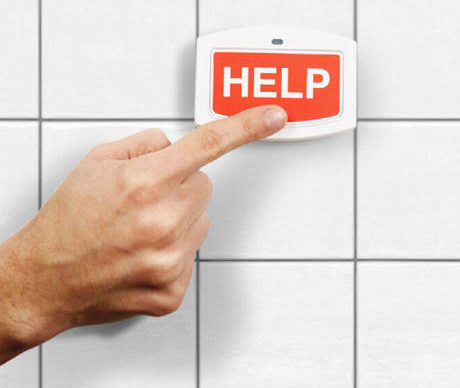Since the first Life Alert commercial debuted in the late ’80s, many have always been curious behind the company that has used the catchphrase, “Help! I’ve fallen, and I can’t get up!” A quick summary of our research shows that Life Alert provides an immediate emergency response but is quite expensive.
Life Alert has three primary devices — the emergency pendant, waterproof shower button, and the portable GPS emergency button. Each of these devices comes with a lifetime warranty and two-way communication, a much-desired feature in the medical alert industry.
Many would also be interested to know that Life Alert’s pendant, shower button, and GPS units are all waterproof. They also have two-way communication, allowing you to call for help from anywhere.
Life Alert ranges from $49 to $89 per month, which may be a bit too much for some people. The company’s outdated website is also unimpressive, and has very little information, meaning you’ll be forced to talk to their pushy sales staff over the phone.
That being said, Life Alert has a pendant that can be worn as a wristband or necklace, a GPS emergency button, and a shower button that you can buy separately or bundle together. The pendant and GPS are standard devices you’ll see in most medical alert systems, but the shower button is unique to Life Alert.
Each device has a two-way intercom that connects you to a monitoring professional, so you can get help wherever you are in your house. Stairs, yards, and showers can be potentially dangerous places if you have mobility issues. In these situations, it is best to have a means of speaking directly into any nearby device for help. All three pieces have a battery life of up to 10 years, so you never have to worry about charging them.
However, it is ironic that the company that came up with the phrase, “I’ve fallen and can’t get up,” doesn’t offer fall detection. Fall detection is a common add-on in medical alert systems that detects speed and pressure changes that happens when a person falls. Most medical alert systems charge $10 per month for this service because it contacts emergency services if you’re unconscious or can’t reach your emergency pendant.
Falls are a serious issue for older adults, but unfortunately, Life Alert hasn’t added this feature to its equipment — this may be a reason why some seniors prefer other brands for their emergency response needs.
